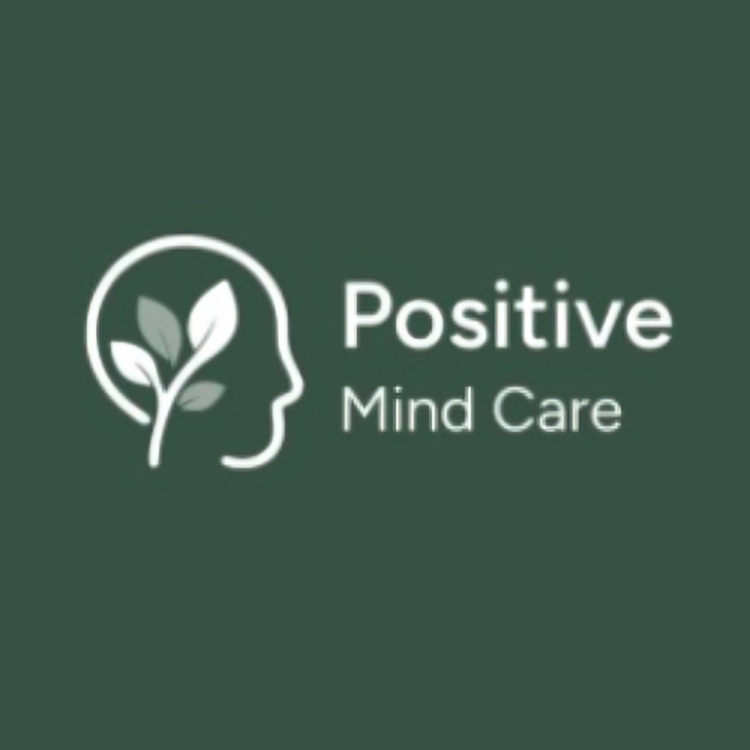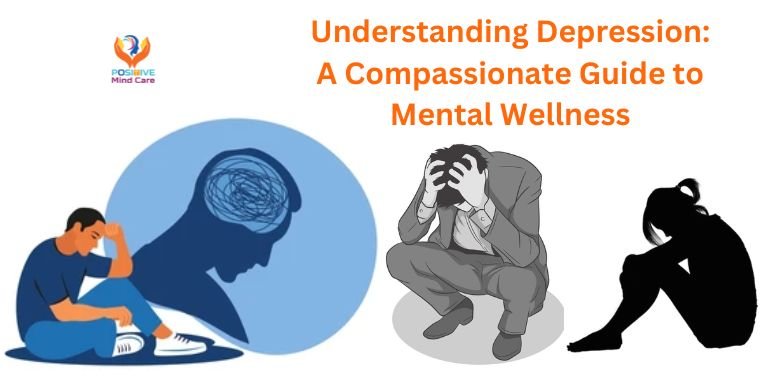Welcome to Positive Mind Care Mental Health Clinic’s comprehensive guide on understanding depression. In this blog post, we’ll delve into the intricate layers of depression, exploring its nature, common symptoms, and the profound impact it has on individuals. Additionally, we’ll emphasize the paramount importance of seeking professional help for effective treatment and recovery.
What is Depression?
Depression is not simply feeling sad or blue; it’s a complex mental health disorder that affects how one thinks, feels, and behaves. It’s characterized by persistent feelings of sadness, hopelessness, and a loss of interest or pleasure in activities once enjoyed. Depression can manifest in various forms, ranging from mild to severe, and can affect people of all ages, genders, and backgrounds.
Common Symptoms of Depression:
Recognizing the symptoms of depression is crucial for early intervention and support. Here are some common signs to watch out for:
- Persistent sadness or emptiness
- Loss of interest in activities
- Changes in appetite or weight
- Difficulty sleeping or oversleeping
- Fatigue or loss of energy
- Feelings of worthlessness or guilt
- Difficulty concentrating or making decisions
- Thoughts of death or suicide
It’s essential to note that individuals may experience depression differently, and symptoms can vary in intensity and duration.
How Depression Affects Individuals:
Depression can have a profound impact on various aspects of an individual’s life, including their emotional well-being, relationships, work, and physical health. Here’s a closer look at how depression affects different areas:
Emotional Well-being: Depression can lead to overwhelming feelings of sadness, despair, and emotional pain, making it challenging to experience joy or contentment.
Relationships: Depression can strain relationships with family, friends, and romantic partners, as individuals may withdraw from social activities or struggle to communicate their feelings.
Work and Productivity: Depression can impair cognitive function, making it difficult to concentrate, make decisions, or perform effectively at work or school. This can lead to absenteeism, reduced productivity, and financial strain.
Physical Health: Depression is not just a mental health issue; it can also impact physical health. Individuals with depression may experience changes in appetite, sleep disturbances, and chronic health conditions such as heart disease or diabetes.
The Importance of Seeking Professional Help:
Seeking professional help is vital for effectively managing and treating depression. Here’s why it’s crucial to reach out to mental health professionals:
Accurate Diagnosis: Mental health professionals can conduct thorough assessments to accurately diagnose depression and rule out any underlying medical conditions.
Personalized Treatment Plans: Mental health professionals can develop personalized treatment plans tailored to the individual’s unique needs, which may include therapy, medication, lifestyle changes, or a combination of approaches.
Support and Guidance: Mental health professionals provide a safe and supportive environment for individuals to explore their thoughts, feelings, and concerns. They offer guidance, coping strategies, and emotional support throughout the treatment process.
Access to Resources: Mental health professionals have access to a wide range of resources and support networks that can aid in the recovery process, including support groups, educational materials, and community services.
Breaking the Stigma: Seeking professional help for depression helps break the stigma surrounding mental illness and encourages open dialogue about mental health. It sends a powerful message that it’s okay to ask for help and prioritize one’s mental well-being.
Conclusion:
Depression is a complex and challenging mental health disorder that requires understanding, support, and compassionate care. By recognizing the symptoms of depression and emphasizing the importance of seeking professional help, we can work together to promote mental wellness and create a more supportive and inclusive society.
Remember, you are not alone, and help is available. If you or someone you know is struggling with depression, don’t hesitate to reach out to a mental health professional for support and guidance. Together, we can navigate the journey toward healing and recovery, one step at a time.
At Positive Mind Care Mental Health Clinic, we’re here to support you on your path to mental wellness. Contact us today to schedule a confidential consultation and take the first step toward a brighter tomorrow.




